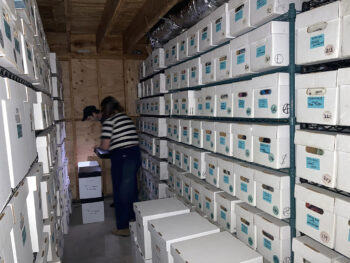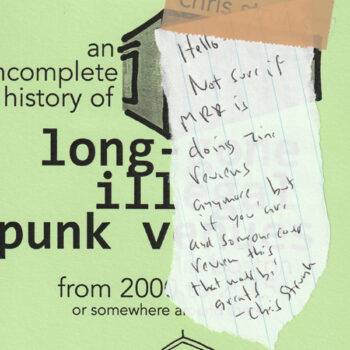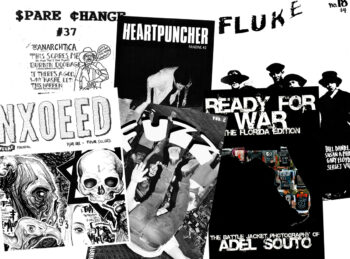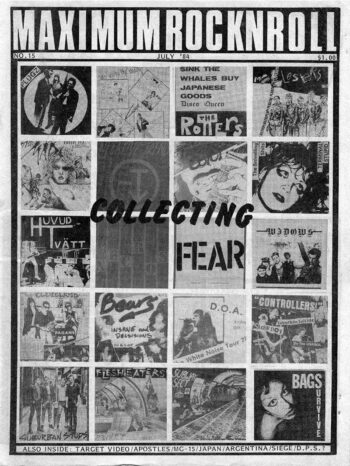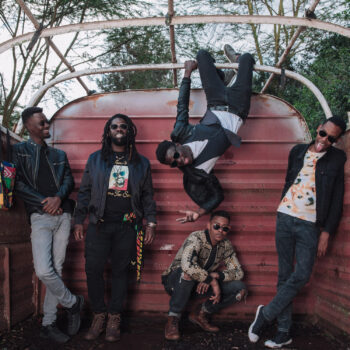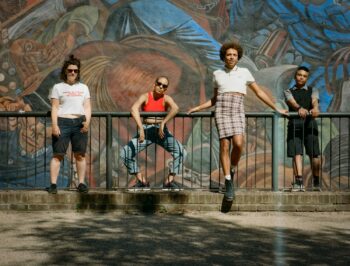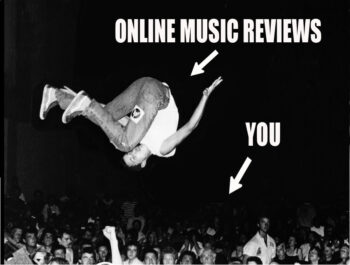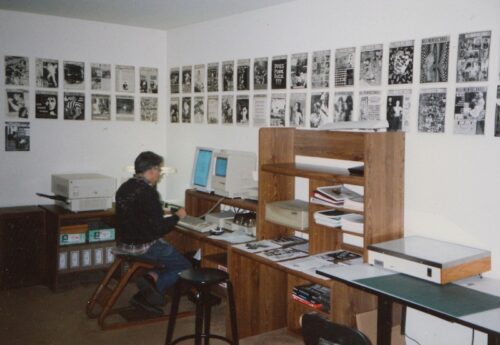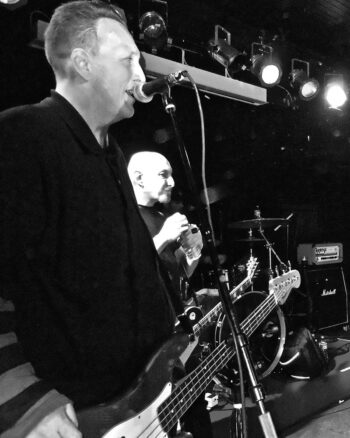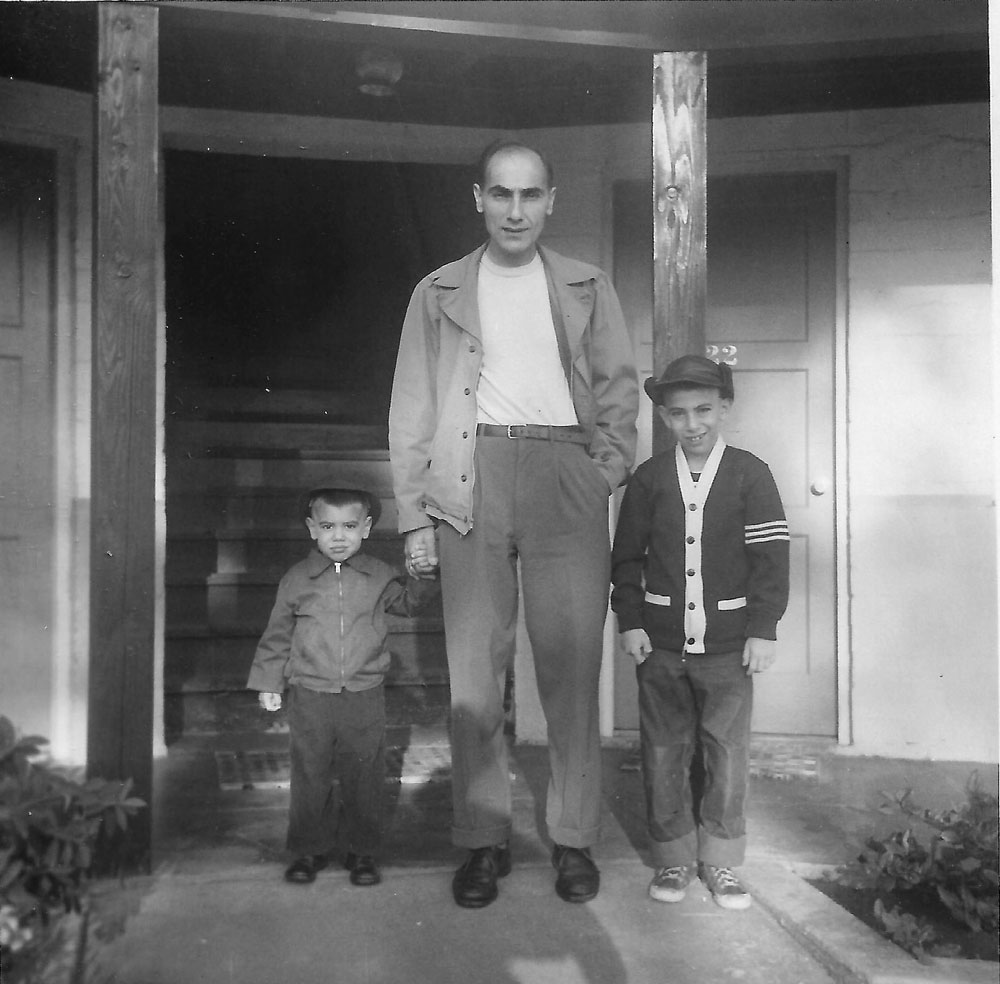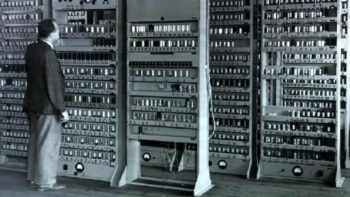The Young Person’s Guide to Loud! Fast! Philly! by Stacey Finney

As punks, we’ve got to take documenting our histories into our own hands. In MRR #385, Joseph Gervasi discusses his oral history project Loud! Fast! Philly! Gervasi and Stacey Finney have built a significant resource about the history of Philadelphia punk, right up to the present, told in the participants’ own words. I’ve spent hours delving into the audio interviews online — here, Stacey shares some highlights.
Being a part of the Loud! Fast! Philly! project has given me a deeper appreciation for the Philly punk scene in a way that allows me to transcend age, time, and space, seeing it finally as a whole. Joseph is correct in that I have listened to every interview. Some even more than once! Some of the stories are so rich that I wanted to absorb every tidbit and had to go back to listen again.
The Philly punk scene has historically been a divided scene, much akin to the history of the city itself. Many “factions” of punks arose out of this small town, each having a voice and impacting its growth (and sometimes its fall). It was always interesting to me that punk was considered a safe haven for alternative thinking, since even within this sub-group of a counter culture, there were microscopic sub-groups that disagreed. Whether it was politics, fashion, or music, there remained a vast divide. Yet, it was still the music and core punk values that I believe allowed for this coexistence, even if it was, at some points, volatile.

The interviews serve as a personal narrative of each individual’s experience in the punk scene and the footprint they created in our fine city. There are those who think that once you’ve heard one story, you’ve heard them all, so why listen to over 80 hours of different people saying the same thing? Thus we see some documentaries that pop up giving a very limited snippet into a colorfully thriving community, especially during the “early” years. For me, each story lends a unique perspective, a unique story and a unique involvement. It is the individual’s personal experience that allows one to truly connect. This connection extends beyond the individual, bridging a visual picture of history as it melds and blends together.

Conducting some of these interviews has been a wonderful experience. I am most appreciative of Joseph and all the amazing people who have been willing to sit down and chat with me. I value that deeply. Some of the folks I spoke with I have known for a quarter century or more! Others are new to me. I feel especially lucky to have the opportunity to see the world through their lens and not just by what I knew of them back when. Each story builds and compliments what has been a punk culture lasting over thirty years. To me, that is mind blowing. These interviewees are a part of our history and integral to the punk movement as a whole.
Choosing just five interviews was a difficult task. There was such sweetness to each person and I love them all. Each story is as unique as the individual. The first on my list is Jo-Ann Rogan of Thorazine. Her interview was great fun. We had never met prior to the interview. Her stories of traveling around Europe and her involvement with Thorazine were hilarious. Her down to earth, candid nature was heartwarming and I adored her from the moment we met. I also enjoyed talking about her growth as a young woman and her perspective on touring around with a bunch of sweaty, smelly dudes. Jo-Ann is charming and lovable and well worth the listen. Girl power rules. Listen to the interview.

Next on my list was Chuck Treece. Chuck was the original drummer of McRad. Chuck was a teenage skate rat when he rolled into the punk scene. He’s been around since the very early days. He has continued to play music and has quite an impressive resume. (I think he can play just about any instrument.) Additionally, I am fascinated by the history of race in Philadelphia. Chuck speaks eloquently of being a young black man in the punk scene and his experiences during these times. (Dallas Cantland also gives some interesting insights on this during his interview.) He intertwines the experiences of being a young black man and being a punk. Some of his stories are sad, yet funny — and very, very true. Listen to the interview.

The other Chuck, of the Meehan variety, is another not to miss. Chuck Meehan is the encyclopedia of all this hardcore/punk in Philly. Not only is his memory impeccable (which few of us can actually claim), but the amount of detail he imparts to the different shows he attended and/or promoted is astonishing. From the Starlight Ballroom, to Minor Threat at Buff Hall in Camden, Chuck has shared some memorable moments. Additionally, he played bass in the well known Philly hardcore band YDI. He was also a show promoter. Chuck worked with many bands that played the Philly area and he was integral in developing the Philly music scene. Chuck tells it all. Wikipedia should hire him. Listen to the interview.

Next on my list is Nancy Petriello Barile. I loved Nancy’s interview. While there may not have been enough time to get everything in in the time allotted, Nancy is one of the early Punk divas. She was involved with the Better Youth Organization (BYO) movement and worked as a show promoter very early on. Nancy was more than just the girlfriend of Brian from Sadistic Exploits. She was a forerunner in female involvement in the scene and she was no bystander. She carried a great deal of influence and was revered as punk royalty. Her historical knowledge of the bands that came through town and shows she attended mixed with punk politics add to the local flavor of this trip back in time. Listen to the interview.

Choosing a final fave is difficult. It is so unfair to do so, but if I must, I must. There is something special to me about each subject. Since I am given these confinements, my final pick is Cordy Swope, bass player of the highly influential band Ruin. (Truly, all of the Ruin band member interviews should be heard.) Cordy talks about the formation of Ruin, the Buddhist influence, and how that seeped into the Philly scene. His interview rounds out the scope and diversity of the Philly punk scene. Ruin truly exemplifies the division and brotherhood of the Philly hardcore tribe: two contradictory themes juxtaposing and complimenting in the same breath. This, ironically, is exactly what defines Ruin. Ruin is one of the most beloved bands in the history of Philly. Listen to the interview.
Take the time and listen to the interviews. Each and every one. You’ll be glad you did.

